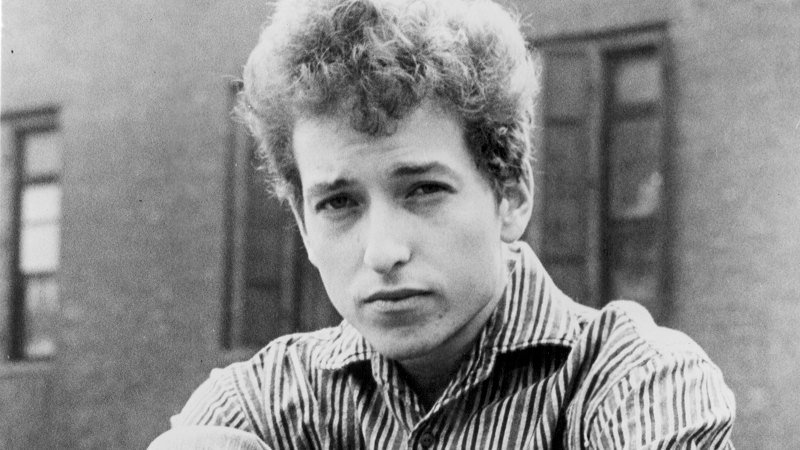This new book about Bob Dylan is a perfect primer for a new generation.
This new book about Bob Dylan is a perfect primer for a new generation.
By Michael Dwyer
January 27, 2025 — 11.00pm

MUSIC
You Don’t Need A Weatherman: Bob Dylan For Beginners
Chris O’Connor
Melbourne Books, $34.99
A Complete Unknown got that bit right. Seven decades in, as Bob Dylan’s records get better and better and his audience older and older, that “Shakespeare of his generation” accolade has been feeling a tad ominous. Kids hate Shakespeare. He’s old, he’s boring and bro, wtf is he even on about?
Now, it seems Timothee Chalamet-nia could change all that. As per Val Kilmer as Jim Morrison, Joaquin Phoenix as Johnny Cash and Austin Butler as Baz Luhrmann’s Elvis, Hollywood has put doe-eyes on a legend to get a fresh generation all emoji-onal. Purists can object that the enlightenment feels a little skin-deep so far, but hey, a meme beats oblivion.
For the newly Dylan-curious, Melbourne uber-fan Chris O’Connor’s 200-page cheat-note is a timely next step. “You don’t need a weatherman” is a line from Subterranean Homesick Blues, a song “some have described as proto-rap,” he notes like that one cool teacher who knows how to make you pop out an earbud and look up for a sec.
Ironically, his book can only amount to talking us through a series of synoptic charts spanning 65 years of meteorological wonderment. But as weathermen go, his passion is off the charts and his lesson plan ingeniously simple: 14 breezy units based on a strict chronology of Bob archetypes.

The basic aim, he writes, is to put an “oceanic body of work … into some kind of order”. Hence Folk singer (1961-62), Protest singer (1962-64), Acoustic poet (1964-65), Dylan goes electric (1965-66), and so on to Americana, Country, Gospel and beyond … all neatly bundled with salient details of his life story and cultural background.
The author knows economy is crucial for an age, and perhaps an age group, with no time for the learned (and duly referenced) tomes of Clinton Heylin, Michael Gray, Paul Williams et al. His scene-setting preface knocks over WWII, Frank Sinatra, “race music”, country and western, the rise and fall of ’50s rock’n’roll and the Greenwich Village folk resurgence in an incredibly impressive four pages flat.
Context for songs about racial murders and the fallout shelter craze, ideas borrowed from the Bible and metaphysical poets and Dylan’s own position in the flow of popular music are deftly handled. Lyrics are skilfully parsed with clear intent, to marvel at vernacular, rhyming patterns or possible personal revelations, or to playfully contrast with the cute inanity of whatever the Beatles were singing in those precious early years.
Advertisement
The thing about Dylan, of course, is that ever since he slammed the door on the folk establishment circa ’65 (O’Connor asks us to consider poetically veiled kiss-offs It Ain’t Me Babe, My Back Pages and Maggie’s Farm), he’s walked wilfully out of step with the culture of his time. So later headings morph from labels to ideas: Jokerman for his “relatively second rate” 1980s, and titles of Dylan’s own selection – Time Out of Mind, Love and Theft, I Contain Multitudes – to reflect his unique, still-expanding canvas.

As any conversation about Bob Dylan must, this one surrenders at regular intervals to the music itself. Each chapter is appended by the digital native’s best friend, a playlist: nine to 12 suggested songs that bend chronological boundaries to illustrate the leaking edges of prescribed genres, and to corral definitive live and bootleg takes into thematic packages.
O’Connor can’t resist further elucidation in these sections, but it’s here that the weatherman is eclipsed, as it were, to the might of the elements. It’s perfectly well to note the Irish folk roots of With God On Our Side, to mention the Grammy upset that greeted Gotta Serve Somebody and the ingenious rhymes of Thunder On The Mountain, but carefully curated prompts to whack on headphones and press play are surely all the enlightenment the curious listener needs.
Maybe most refreshingly, Dylan For Beginners studiously avoids the more academic observer’s need to understand, in favour of the joys of interpretation.
Loading
Early on, O’Connor airs the possibility that maybe “if the songs have a clear and obvious meaning, then there was no need for them to be written”.
In Gates of Eden, Dylan says even that far better: “At dawn, my lover comes to me and tells me of her dreams/ With no attempts to shovel the glimpse into the ditch of what each one means.”
Act that, Timothée Chalamet.
The Booklist is a weekly newsletter for book lovers from Jason Steger. Get it delivered every Friday.
Michael Dwyer is an arts and music writer.
Loading
Discover more from World Byte News
Subscribe to get the latest posts sent to your email.

